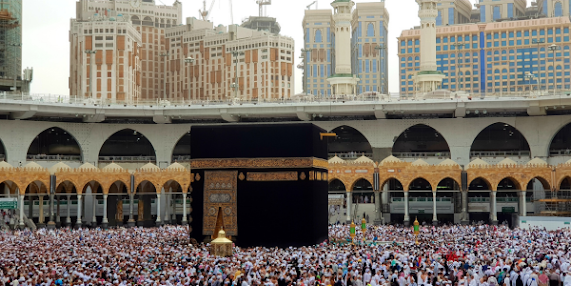Understanding Umrah: A Spiritual Journey of Devotion and Reflection
Umrah is a sacred pilgrimage undertaken by millions of Muslims each year to the holy cities of Mecca and Medina in Saudi Arabia. While not obligatory like the Hajj pilgrimage, Umrah holds significant spiritual importance for Muslims around the world. It is often referred to as the "lesser pilgrimage" or the "minor pilgrimage" in comparison to Hajj, but its rewards and blessings are immense for those who undertake it with sincerity and devotion.
Umrah Rituals:
The Umrah pilgrimage consists of several rituals that symbolize the devotion and submission of the pilgrim to Allah. These rituals include:
- Ihram: The pilgrim enters a state of ihram, a sacred state of purity and sanctity, by donning special white garments for men and modest attire for women. This signifies a detachment from worldly affairs and a complete focus on spiritual devotion.
- Tawaf: Pilgrims perform Tawaf, which involves circumambulating the Kaaba, the sacred structure located in the Masjid al-Haram in Mecca, seven times in a counterclockwise direction. This act symbolizes the unity of the Muslim Ummah (community) and the circling of the pilgrim's heart around the center of their faith.
- Sa'i: After Tawaf, pilgrims perform Sa'i, which involves walking between the hills of Safa and Marwah seven times. This commemorates the actions of Hajar, the wife of Prophet Ibrahim (Abraham), as she searched for water for her son Isma'il (Ishmael) in the desert.
- Halq or Taqsir: The final step of Umrah involves either shaving the head (Halq) or trimming a portion of the hair (Taqsir) to symbolize humility and renewal. This act marks the completion of the pilgrimage rituals.
Spiritual Significance:
Umrah offers Muslims the opportunity to seek forgiveness for their sins, purify their souls, and strengthen their relationship with Allah. It is a time for reflection, introspection, and spiritual rejuvenation. The act of performing Umrah is believed to draw the pilgrim closer to Allah and bring about a sense of inner peace and tranquility.
Benefits of Umrah:
While Umrah is not mandatory, it holds numerous benefits for those who undertake it:
- Spiritual Rewards: Every step taken during Umrah is believed to be rewarded by Allah, with sins forgiven and prayers answered.
- Community Bonding: Umrah brings Muslims from diverse backgrounds together in a shared act of worship, fostering a sense of unity and brotherhood.
- Personal Growth: The physical and spiritual challenges of Umrah, such as enduring long hours of worship and facing crowds, contribute to personal growth and resilience.
Conclusion:
In conclusion, Umrah is a sacred journey filled with faith, devotion, and spiritual enlightenment. It provides Muslims with a chance to strengthen their bond with Allah, seek forgiveness, and reinvigorate their dedication to righteous living. Whether pursued individually or with loved ones, Umrah packages offer tailored experiences that enhance the pilgrimage's significance. These packages cater to diverse preferences and needs, ensuring that every pilgrim can embark on this transformative journey in a manner that resonates deeply with their heart and soul. Ultimately, Umrah leaves an indelible mark on the lives of those who partake, enriching them with lasting spiritual fulfillment and a renewed sense of purpose



.png)
Comments
Post a Comment